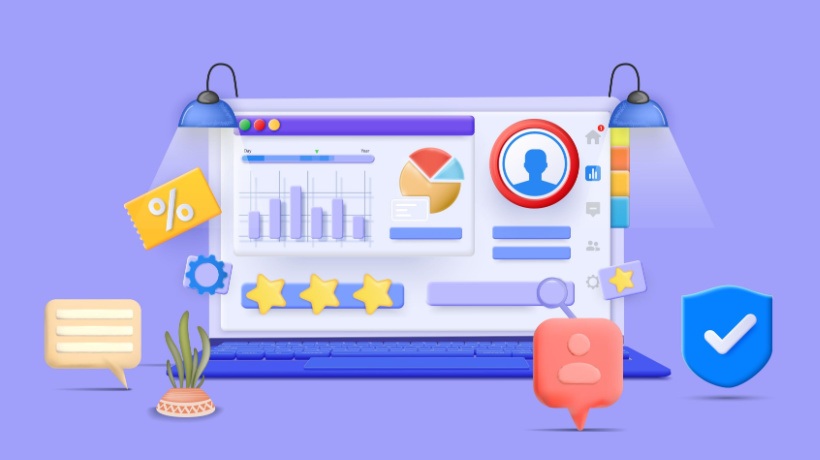Level Up Your eLearning Today With AI
Embracing the transformative power of Artificial Intelligence (AI) in eLearning heralds a new era of educational innovation and opportunity. As we delve into the realm of digital education, it becomes increasingly evident that AI offers a multitude of advantages that revolutionize the learning experience for students, educators, and institutions alike. From personalized learning paths to adaptive assessments, AI's impact on eLearning is profound and far-reaching. Let's explore the ten key advantages of AI in eLearning in 2024 that are shaping the future of education.
Definition of AI
Artificial Intelligence refers to the simulation of human intelligence processes by machines, typically computer systems. These processes include learning (the acquisition of information and rules for using it), reasoning (using rules to reach conclusions), and self-correction. AI encompasses various subfields, including Machine Learning (ML), Natural Language Processing (NLP), computer vision, robotics, and more. AI systems are designed to perform tasks that would normally require human intelligence, such as recognizing patterns, understanding language, making decisions, and solving complex problems. The ultimate goal of AI is to create machines that can think, learn, and act autonomously, with capabilities approaching or exceeding human-level intelligence in specific domains.
Overall, AI in eLearning in 2024 enhances the learning experience by making it more personalized, interactive, and adaptive, while also empowering educators and institutions with valuable insights and tools to support student success. Although many of us educators may hesitate and feel that we are cheating the system, and perhaps ourselves, we should see it as an endless offering of information at our fingertips. We can choose to do what we want with these benefits and advantages in eLearning.
Top Advantages Of AI In eLearning
Personalized Learning Paths
AI algorithms analyze individual student performance data to tailor learning paths, adapting content and pacing to each student's strengths, weaknesses, and learning preferences.
Adaptive Assessments
AI-powered assessment tools dynamically adjust the difficulty and type of questions based on student responses, providing more accurate insights into students' mastery of the material.
Content Curation And Recommendation
AI algorithms analyze user behavior and preferences to recommend relevant learning materials, resources, and courses, helping learners discover content that matches their interests and goals.
Automated Grading And Feedback
AI-powered grading systems can efficiently evaluate assignments, quizzes, and exams, providing instant feedback to students and freeing up instructors' time for more personalized interactions and interventions.
Natural Language Processing
NLP technologies enable conversational interfaces, chatbots, and virtual assistants that support learners with instant answers to questions, explanations, and guidance in a conversational manner.
Data-Driven Insights And Analytics
AI algorithms analyze large datasets generated by learners' interactions with eLearning platforms, providing valuable insights into learning trends, student engagement, and areas for improvement at both the individual and institutional levels.
Content Creation And Generation
AI-powered tools assist educators in creating interactive and engaging learning materials, generating quizzes, simulations, and multimedia content tailored to specific learning objectives and student needs.
Predictive Analytics For Student Success
AI algorithms can predict students at risk of dropping out or struggling academically based on historical data and behavioral patterns, allowing institutions to intervene proactively with targeted support and interventions.
Language Translation And Accessibility
AI technologies support multilingual eLearning environments by providing real-time translation of course content, subtitles for videos, and accessibility features such as text-to-speech and speech-to-text capabilities.
Continuous Learning And Skill Development
AI-powered recommendation systems suggest personalized learning paths and microlearning opportunities to help learners continuously update their skills, stay relevant in their fields, and pursue lifelong learning.
Popular AI Chat Platforms In 2022
- GPT-3 based platforms
These are chat platforms such as chatbots for customer service, virtual assistants, and perform language understanding tasks. - Google's chatbot
Google has been actively developing conversational AI technology, including chatbots for various applications. - Facebook's chatbots
Facebook has invested in AI-driven chatbots for its Messenger platform, enabling businesses to automate customer interactions. - Microsoft's AI chatbots
Microsoft has its own suite of AI technologies, including chatbots for customer service and productivity applications. - Amazon Lex
This is Amazon's AI service for building conversational interfaces into any application using voice and text. - IBM Watson assistant
This is IBM's offering for building conversational interfaces for a wide range of applications, including customer service and healthcare. - Open-source chatbots
There are various open-source AI chatbot frameworks available, allowing developers to build and customize their chatbots.
These platforms may have evolved and new ones may have emerged. To find the most accurate information on the top AI chats in 2024, I recommend checking recent industry reports, news articles, or consulting specialized AI websites and forums.
Conclusion
In conclusion, the benefits of AI in eLearning in 2024 are multifaceted and transformative, offering a range of advantages to students, educators, and institutions alike. Through personalized learning paths, adaptive assessments, and content curation, AI empowers learners to engage with educational materials in ways that are tailored to their individual needs, preferences, and learning styles. Additionally, AI-driven insights and analytics provide educators with valuable data to inform instructional decisions, track student progress, and intervene proactively when needed, ultimately enhancing student outcomes and fostering a culture of continuous improvement. As AI technologies continue to evolve and become more sophisticated, the potential for innovation in eLearning is limitless, promising a future where education is more accessible, inclusive, and effective for learners around the world.








